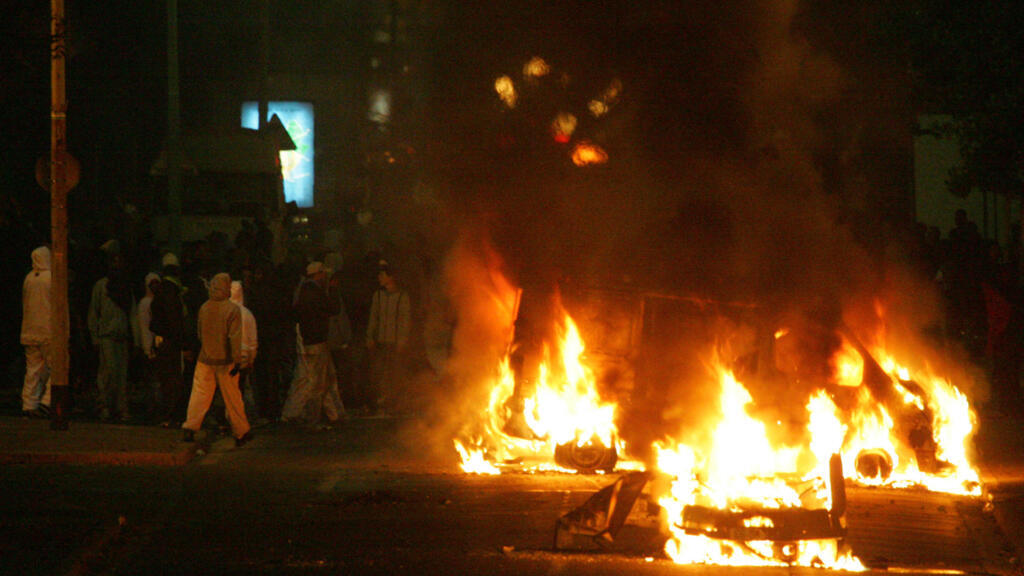
Twenty years on, the deaths of French teenagers Zyed Benna, 17, and Bouna Traoré, 15, still weigh heavily in Clichy-sous-Bois, the Paris suburb where they were electrocuted while fleeing a police identity check. That tragedy spurred 21 nights of unrest across France.
It was 5.30pm and night was falling as a group of 10 boys headed home after a day at the football pitch. A resident saw them near a building site and called police, wrongly fearing a break-in.
Fourteen officers arrived and began chasing them. On one side was a simple suspicion of an offence. On the other was a deep fear of identity checks.
Three boys climbed the fence of an EDF electrical substation as they ran. Two officers nearby saw them. One said over his radio: “If they go onto the site, I wouldn’t give much for their chances.”
Thirty minutes later, 20,000 volts surged through Zyed and Bouna, killing them instantly and causing a brief power cut in the town.
A third boy, Muhittin, was badly burned but managed to escape, call for help and say what had happened. Anger spread fast.
In a Paris suburb, young people learn how to handle discriminatory police stops
Spreading unrest
The next day, the world discovered Clichy-sous-Bois through images of burning cars. The unrest spread from working-class neighbourhoods around Paris to the outskirts of cities across the country.
On 7 November, after several nights of violence, then prime minister Dominique de Villepin announced a state of emergency. It was the first since the Algerian War. Prefects were allowed to impose curfews.
Nicolas Sarkozy, interior minister at the time, had for months been making tough remarks about young people in the suburbs. Two days before the deaths, he said: “Have you had enough of all this scum? Well, we’re going to get rid of them for you.”
Inside the government, Azouz Begag, the minister for equal opportunities, opposed this approach. “The only order that needs to be restored is the order of equal opportunities,” he said.
France denies police racism is widespread, but evidence tells another story
'Stuck in denial'
In a statement issued for the 20th anniversary, de Villepin said he had spent two decades trying to understand the fractures that led to the tragedy.
“We are still stuck in denial and neglect,” he said, adding the boys were “children of France” who were “victims of segregation and of the republic turning its back”.
The balance of the nation, de Villepin said, must be built on truth because "only truth guarantees justice”.
Rebuilding trust in public leadership, he said, was “essential”, adding: “Truth is not a political risk. It is the basis of democratic life.”
He added that restoring public trust in political leaders was vital and that speaking the truth should be seen as a normal part of democracy, not a risk.
The government in 2005, De Villepin said, had weakened trust by too quickly repeating incorrect information from the Interior Ministry.
He also criticised public remarks that “hurt people and fuelled resentment, as if the republic reduces some of its children to a problem that must be solved”.
Survey shows nearly all black people in France have experienced racism
Persistent divides
De Villepin said the 2005 unrest showed what he called a “two-speed France”, with communities where the French state still felt present and others where it had become distant or seen as a constraint.
He pointed to later protests such as the Yellow Vests in 2018 and unrest after the killing of Nahel Merzouk, a 17-year-old shot by police during a traffic stop in June 2023, as signs that many people still felt abandoned.
He said the tragedy in Clichy-sous-Bois revealed a French youth that wanted only to be recognised and respected.
For people in working class neighbourhoods, the unrest underscored a need to be heard and a strong feeling of injustice after a police intervention that left two teenagers dead.
Ten years later, two police officers were put on trial for failing to help the boys but the court found they lacked clear knowledge of a serious imminent danger and acquitted them.







